(Fatherland) - On the morning of October 25, in Ninh Binh, the Vietnam National Institute of Culture and Arts, the Department of Culture - Sports of Ninh Binh province and the Institute for Monuments Conservation organized the Workshop "Preserving and restoring typical historical - cultural relics, serving traditional education and economic and tourism development".
Associate Professor, Dr. Nguyen Thi Thu Phuong, Director of the Vietnam National Institute of Culture and Arts; Dr. Nguyen Manh Cuong, Director of the Department of Culture and Information of Ninh Binh province; Master, Architect Tran Quoc Tuan, Deputy Director of the Institute for Monument Conservation chaired the Workshop.
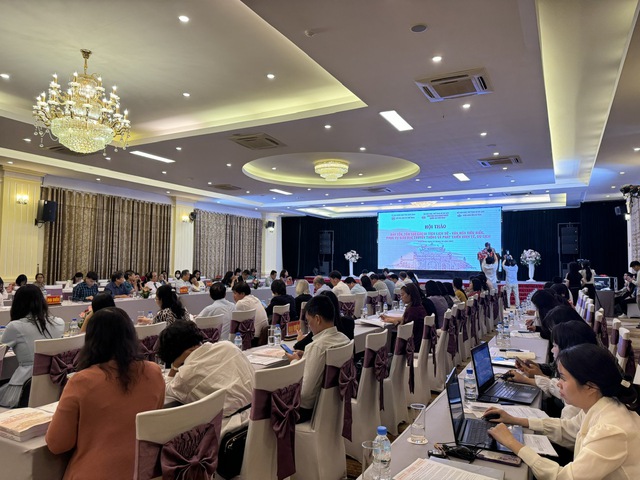
Conference Scene
Improve the effectiveness of preserving and promoting the values of historical and cultural relics
According to Associate Professor Dr. Nguyen Thi Thu Phuong, Director of the Vietnam National Institute of Culture and Arts, over thousands of years of building and developing the country, ethnic communities in Vietnam have created and passed down an extremely large, rich and diverse treasure of cultural heritage, including tens of thousands of valuable historical and cultural relics from different historical periods.
Historical and cultural relics have been supported, invested in, preserved, embellished and promoted in contemporary life by the State, the community, businesses and local political, social and professional organizations.
In addition to the achieved results, the process of protecting and restoring historical and cultural relics also revealed limitations and shortcomings such as: the restoration, embellishment, and prevention of degradation of relics sometimes and in some places did not ensure the provisions of the law; the quality of human resources managing and implementing the conservation and restoration of relics was still limited.
The roles of parties involved in preserving, restoring relics, exploiting economic and tourism development, especially the role of the community, have not been clearly decentralized, defined responsibilities, or divided into benefits.
The results of mobilizing social resources to restore and embellish relics are not commensurate with the potential and status of cultural heritages. The connection and cooperation between sectors, fields and localities in the strategy of preserving and promoting the value of historical and cultural relics associated with education, human resource development, building and developing cultural and tourism products and services, contributing to the development of creative cultural industries are still limited and inadequate.
Speaking at the workshop, Architect Tran Quoc Tuan, Deputy Director of the Institute for Monument Conservation, said that by mid-2024, Vietnam will have 8 heritage sites recognized as World Cultural and Natural Heritage, 133 relic sites ranked as special national heritage sites, 3,628 relic sites ranked at the national level, and about 11,000 relic sites ranked at the provincial level.
"The Party and State have issued and effectively implemented many guidelines, policies, and laws to preserve and promote Vietnamese cultural values, considering culture as soft power, a solid spiritual foundation of society, and an important driving force to ensure the country's sustainable development," Mr. Tran Quoc Tuan emphasized.
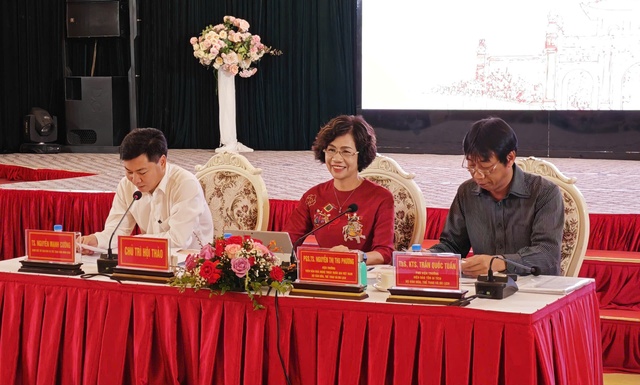
Delegates chairing the workshop
Accordingly, the cause of building and developing Vietnamese culture and people has changed positively; many traditional cultural values and cultural heritages have been inherited, preserved and promoted, contributing significantly to promoting the image of the country and Vietnamese people to the world.
Through the preservation and restoration of historical and cultural relics, propaganda and education work, raising awareness of all classes of people and tourists about the identity and value of cultural heritage; promoting creative activities, developing cultural products, economy, tourism services, creating more jobs, and increasing income for people are promoted.
Besides, the process of protecting and promoting the value of historical and cultural relics associated with education, cultural and tourism development, and promoting the development of cultural industries, still reveals many limitations and inadequacies.
The workshop "Preservation and restoration of typical historical and cultural relics, serving traditional education and economic and tourism development" aims to clarify the current status of implementing solutions, policies, models, and lessons learned in the work of preserving and promoting the values of typical historical and cultural relics, serving the tasks of traditional education and economic and tourism development in ministries, branches, and localities today.
The workshop also suggested and proposed solutions and recommendations to competent agencies and local authorities to adjust and supplement appropriate mechanisms and policies to improve the effectiveness of preserving and promoting the values of historical and cultural relics in the coming time.
Architect Tran Quoc Tuan said that the presentations at the workshop included 4 groups of topics: Theory and approaches, concepts of conservation and restoration of typical historical and cultural relics, serving traditional education and economic and tourism development.
Domestic and international solutions, models, and lessons learned in preserving and promoting the value of historical and cultural relics to effectively serve education, develop economic sectors, tourism, and cultural industries in sustainable development in Vietnam.
Breakthrough solutions in research and application of modern science and technology to preserve and promote the value of historical and cultural relics to serve traditional education and economic and tourism development.
Orientation of association and cooperation in preserving and promoting the value of historical and cultural relics in educational activities and economic and tourism development.
Director of the Department of Culture, Sports and Tourism of Ninh Binh province Nguyen Manh Cuong shared that, identifying cultural heritage as a potential and strength, Ninh Binh has always paid attention to the work of preserving and promoting the value of cultural heritage associated with economic and tourism development, especially the system of historical - cultural relics and typical scenic spots of the province.
Ninh Binh currently has 1,821 relics, of which 405 are ranked, including 01 world cultural and natural heritage (Trang An Scenic Landscape Complex), 03 special national relics, 81 national-ranked relics, and 324 provincial-ranked relics.
"Many historical and cultural relics and scenic spots have been invested in, restored and upgraded to serve the religious needs of the people and serve tourists for sightseeing and research.
Thousands of relics have been restored and embellished; many relics have promoted their values, contributing to educating traditions and national pride; many relics and scenic spots have become attractive tourist areas and destinations, attracting a large number of domestic and international tourists...", said Mr. Nguyen Manh Cuong.
The presentations mentioned different perspectives revolving around the topic of preserving and promoting the value of typical historical and cultural relics associated with education and economic and tourism development.
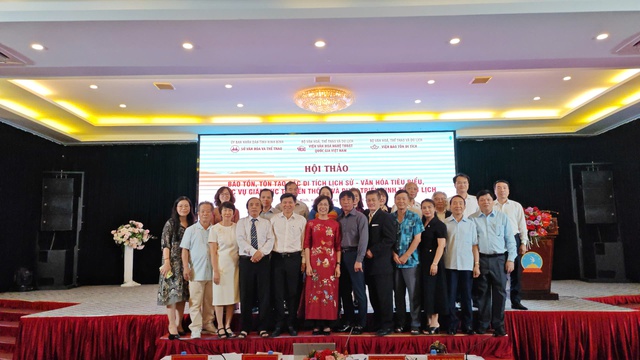
Delegates attending the workshop
Cultural heritage is increasingly proving its role as a rich resource for economic growth.
Associate Professor Dr. Bui Thanh Thuy (Hanoi University of Culture) mentioned practical models at home and abroad related to the issue of preserving and promoting the values of historical and cultural relics, educating traditions through tourism. "Historical and cultural relics are always and need to be protected and promoted to educate traditions, connecting the past and the future for future generations. This is a priceless asset in the nation's long-standing cultural heritage treasure, the evidence and material that most deeply reflect the cultural characteristics, the past, the origin and the heroic tradition of fighting to build and defend the country of the nation, and is a component of the national cultural heritage treasure...", Associate Professor Dr. Bui Thanh Thuy emphasized.
This expert noted that the greatest significance of preserving and promoting the values of relics is to ensure the continuity and unbrokenness of the nation’s cultural and historical traditions. At the same time, when relics become tourism resources, they will bring great economic benefits. Local communities in any region that has developed tourism recognize this benefit.
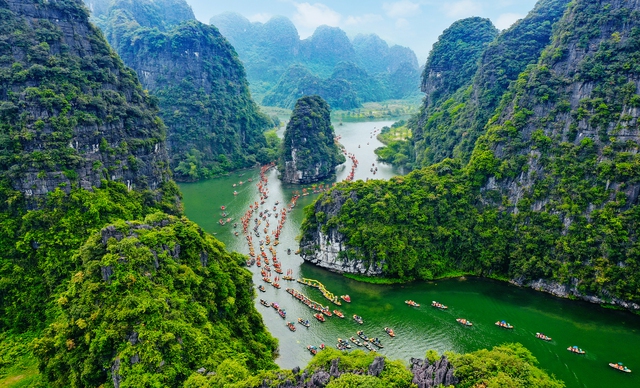
Heritage conservation must be associated with exploitation, turning heritage into an important tourism product (illustrative photo)
Referring to the strategy of preserving heritage values and promoting the identity of Vietnamese urban areas, Dr. Architect Ngo Viet Nam Son noted that the modernization process is seriously threatening the cultural and historical values of urban areas, especially in terms of planning, architecture and environment.
"The fact that many provinces and cities in Vietnam currently only focus on protecting historical monuments and ignore the need for comprehensive solutions for historical centers and heritage areas is a strategic mistake," emphasized architect Ngo Viet Nam Son.
This has led to many heritage spaces being indirectly encroached upon by neighboring constructions. On the other hand, managers have missed the golden opportunity to renovate heritage neighborhoods that are attractive in terms of culture and history, attracting tourists, and bringing in large budget revenues for the locality.
MSc. Architect Nguyen Thi Huong Mai, Institute for Monuments Conservation, said that heritage conservation must be associated with exploitation, turning heritage into an important tourism product. Accordingly, in recent years, cultural heritage has increasingly proven its role as an abundant resource for economic growth and a solid foundation for spiritual life, an environment that nurtures and enriches cultural identity and cultural diversity.
Heritage has become an important tourism product, contributing to the economy of each locality. In the current context, the tourism economy must also be associated with green, clean, sustainable, friendly conditions, and the rational exploitation and use of natural resources to limit negative impacts on the human living environment./.
Source: https://toquoc.vn/cultural-district-that-is-more-proving-its-role-in-resource-for-economic-growth-20241025111317043.htm


![[Photo] Cultural, sports and media bloc at the 50th Anniversary of Southern Liberation and National Reunification Day](https://vphoto.vietnam.vn/thumb/1200x675/vietnam/resource/IMAGE/2025/4/30/8a22f876e8d24890be2ae3d88c9b201c)
![[Photo] Chinese, Lao, and Cambodian troops participate in the parade to celebrate the 50th anniversary of the Liberation of the South and National Reunification Day](https://vphoto.vietnam.vn/thumb/1200x675/vietnam/resource/IMAGE/2025/4/30/30d2204b414549cfb5dc784544a72dee)

![[Photo] Performance of the Air Force Squadron at the 50th Anniversary of the Liberation of the South and National Reunification Day](https://vphoto.vietnam.vn/thumb/1200x675/vietnam/resource/IMAGE/2025/4/30/cb781ed625fc4774bb82982d31bead1e)


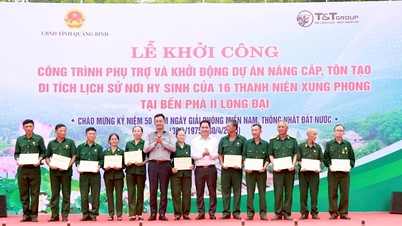



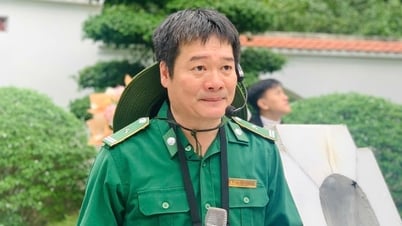

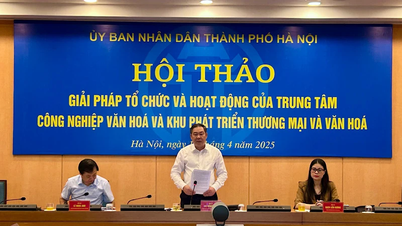



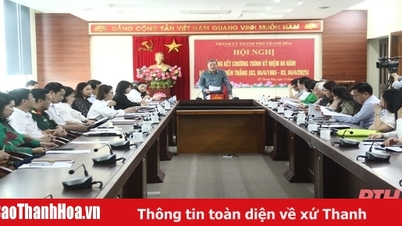



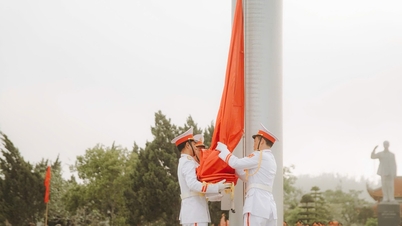







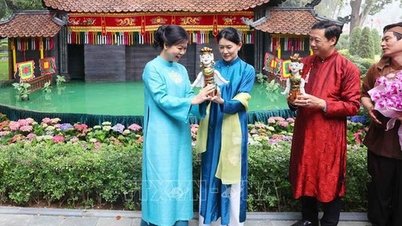
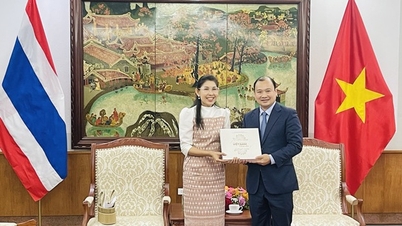
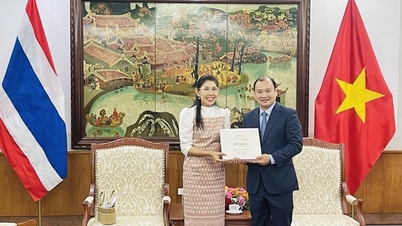

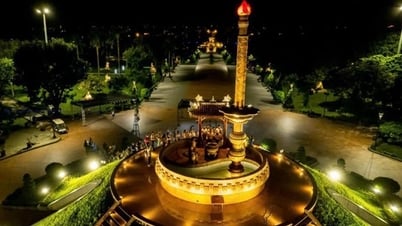
![[Photo] The parade took to the streets, walking among the arms of tens of thousands of people.](https://vphoto.vietnam.vn/thumb/1200x675/vietnam/resource/IMAGE/2025/4/30/180ec64521094c87bdb5a983ff1a30a4)















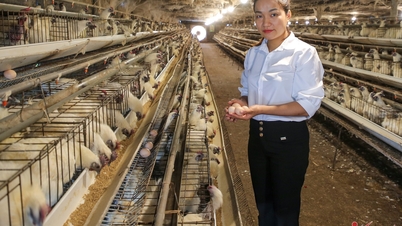

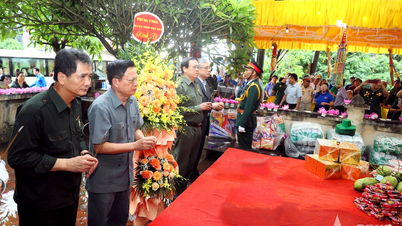
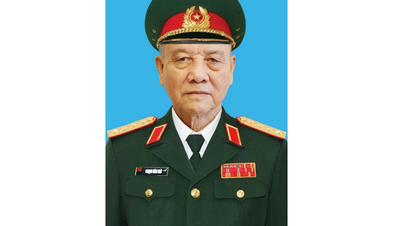




















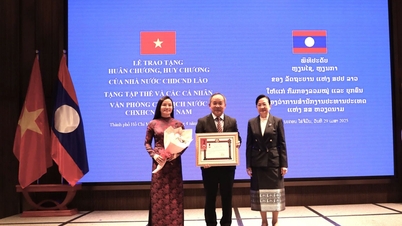



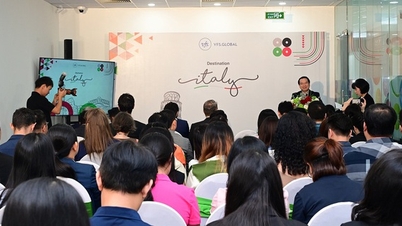




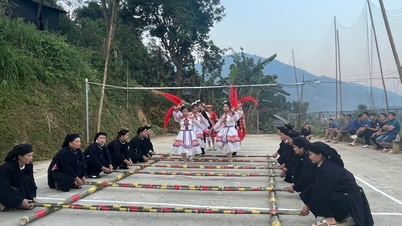
















Comment (0)